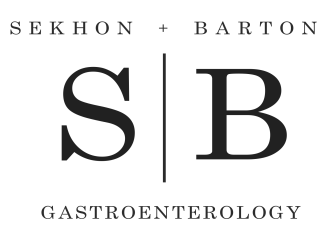Irritable Bowel Syndrome
What is it?
Irritable bowel syndrome (IBS) is a cluster of symptoms, consisting of abdominal discomfort, bloating, constipation, and/or diarrhea. Some IBS patients experience alternating diarrhea and
constipation. Mucus in and around the stool is commonly noticed.
It is helpful to know what IBS is NOT:
It is not a cancer and will not cause cancer
It is not an anatomic or structural defect
It will not cause other gastrointestinal diseases
It will not progress to a more serious disorder
If you think you have IBS, see a doctor.
Talking with your doctor about your problem is the first helpful step, because we all fear the unknown. Your doctor may order a series of tests to make sure that there is no other underlying disease
causing your symptoms.
Symptoms of IBS:
- Stomach pain and cramps, related to a bowelmovement
- Diarrhea or constipation (some people switch back and forth between diarrhea and constipation)
- Bloating
- Gas
Signs that suggest you may not have IBS:
- weight loss
- rectal bleeding
- change in a stable bowel habit
- unremitting or prolonged abdominal pain
- family history of colon cancer or inflammatory bowel disease
What can help symptoms of IBS?
There are various treatment options you can try:
- Start a diary
- Keep track of what you ate each day, what you did, and how you felt. That way you can figure out if anything you do or eat makes your symptoms better or worse
- Stop eating foods that might make your IBS worse
- Start by giving up foods that give you gas
- Avoid milk and other dairy products that may make your IBS worse
- Eat more fiber
- You can do this by eating more fruits and veggies
- try fiber pills or powders
- IF eating more fiber makes symptoms worse, cut back on the fiber
- Exercise!
- Do something active for 20-60 minutes, 3-5 days a week
- Studies show this helps improve IBS symptoms
Treating IBS:
Medicines can ease the symptoms of IBS. But no treatment can cure the condition. Counseling might also help with IBS, because stress and worry can make the condition worse.
The medicines that can help with IBS symptoms include:
- Medicines to ease diarrhea
- fiber supplements
- loperamide
- Imodium
- anti-cholinergics
- Medicines to ease constipation
- Fiber
- laxatives
- fluids!
- Antidepressants
- These medicines work by blocking pain. They are used at small doses for IBS compared to depression.
- Antispasmodics
- Anti-cholinergics
- Dicyclomine
- Levsin
- Bentyl
- Antibiotics
- These medicines sometimes help with bloating and diarrhea in some people
Remember, most people with IBS have the condition for the rest of their life. Even so, most people find ways to improve their symptoms. The key is to keep working with your provider until the two of you find an approach that works.

